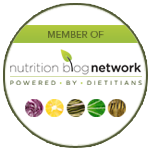What I Like and Dislike about MyPlate
Most people I discuss nutrition with have heard of the Food Guide Pyramid, possibly MyPyramid, but even fewer have heard about MyPlate, which is the current national nutrition education tool for general population nutrition guidance. This post discusses my criticism of MyPlate after a brief criticism of the other nutrition teaching tools. The Food Guide


